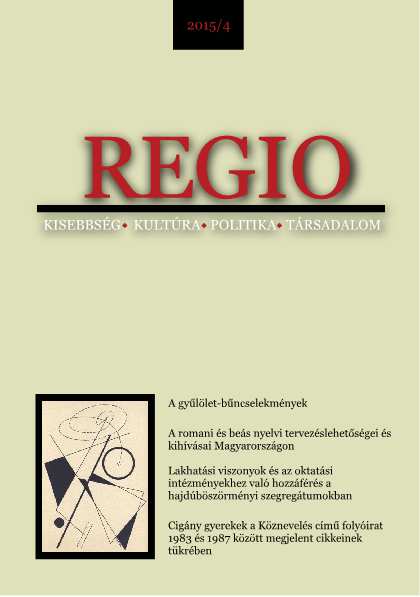
We kindly inform you that, as long as the subject affiliation of our 300.000+ articles is in progress, you might get unsufficient or no results on your third level or second level search. In this case, please broaden your search criteria.

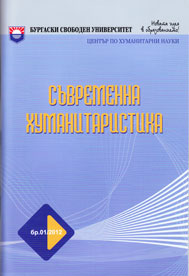
The pedagogical aspects of skills formation for independent life in children with unequal social status are targeted at defining the essence of children ‘skills, specifying their interests and needs, forming basic important skills for the children. The specifics of the term “children with unequal social status” are explained. The methodological principles of formation of skills for independent life are displayed. The main modules of Guidelines for formation of skills for independent life,developed for children with unequal social status aged 9-18 and adapted for a lower age level, are presented.
More...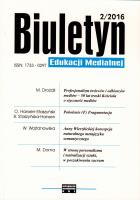
Author quotes the results of research about the Polish children and youth in the Internet and compares them with the other European countries. Presents dangers about unreasonable use of social media and describes causes of exposure children and adolescents to harmful content on the Internet. Author presents the results of self studies about popularity media education’s initiatives in the Internet and also describes social campaigns, which goal was promote sensible use of the Internet. At the end Author describes the policy of presence in social media based on activities of ‘Fundacja Dzieci Niczyje’ and formulates proposals and demands.
More...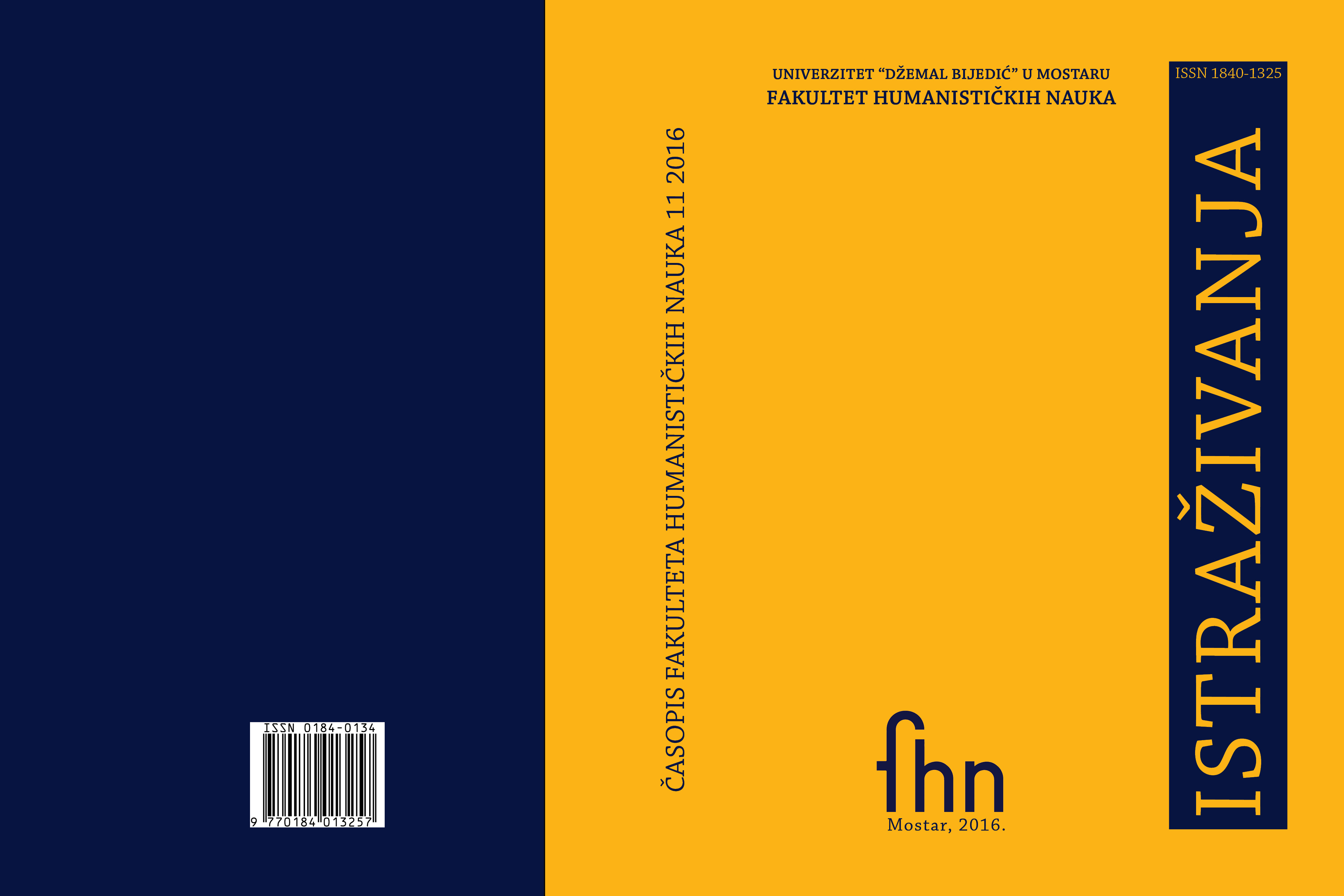

My study focuses on tertiary education chances and opportunities of disadvantaged and multiply disadvantaged children and youngsters. The target group of the research consisted of disadvantaged full-time secondary grammar school students who aim to get out of their position and status with the help of further education. Via the interviews I tried to examine the difficult topic of further education from the perspective of the disadvantaged and the multiply disadvantaged students, also aspiring to reveal their notions and fears about the topic. The main goal of my research was to get an insight into the perspective and mentality of disadvantaged and multiply disadvantaged students.
More...
The purpose of the study is to provide an insight into the links between the characteristics features of late-modern age and child-rearing. To this end, without aiming to give a detailed analysis, the present paper attempts to explore and identify the above referred characteristics to meet the challenges invited by the given issue and determine the true nature of child-rearing.
More...
The present study outlines the role of the teacher’s individual characteristics (the teacher viewed as a person) on the effectiveness of teaching. The professional knowledge, skills and attitudes need to be put in correspondence with personal traits in order to develop a reflective practice, to integrate innovation in teaching, to promote a competence-based learning process in a broader context of lifelong learning. A redefined relationship between the professional dimension and the personal dimension in the teacher’s identity is essential for successfully fulfilling the educational mission of teachers related to the challenges of the 21st century
More...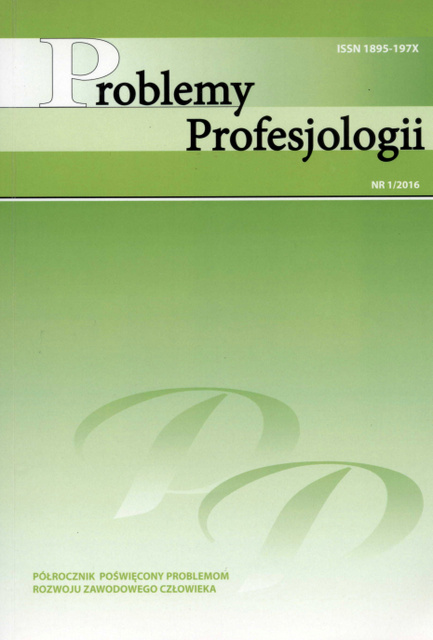
Grammar school students make their choices with respect to an educational and career path in a challenging environment. The changes which occur inside their bodies, frequent conflicts with adults, changing role models or strong peer influence: these are just a few of the difficulties that emerge. In addition, the unstable employment situation and the abundant educational opportunities make the young person face a great number of decision-making dilemmas. In order to support grammar school youth it is important to familiarize oneself with the factors which, in their opinion, are useful while making educational and career-related decisions at the third educational stage. This is what the study is devoted to. The article presents, as follows: 1) theoretical information on career counselling in schools; 2) the results of a survey conducted among students of grammar schools located both in the country and in county towns.
More...
This article deals with the ergonomics of computer workstation at primary school. There were chosen 19 primary state schools (9 urban, 10 rural schools) what represented 27 computer classrooms in the Banska Bystrica Region (Slovak Republic). The survey was realized by elaborated questionnaire that was aimed at type of computers, display screen, keyboard, work desk and work surface, work chair, space requirement. We found that a big problem in all computer classrooms is stable table (monitor, keyboard is too high, not foot support) and chairs are without moving and impossibility of height adjustment, which results in uncomfortable seating for pupils from first to ninth grades.
More...
The current discussion about enhancing the quality of education and training in schools and universities is mainly focussed on answering the question: which ways of thinking and working, which learning strategies and methods may be considered modern and expedient in order to fulfil the standards and competence expectations that enable learners to get along in their working and living environment1. In this context it seems clear that object-related learning strategies themselves become the content of debate in class and have to be learned and implemented. Currently, this especially applies to the use of new media, which will be discussed in the following text. This paper is characterised by the close connection of educational objectives and contents as well as media in the meaning of educational instruments.
More...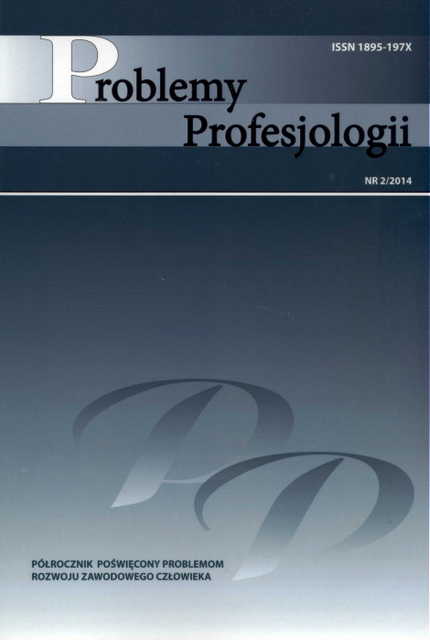
The article discusses the issue of teachers’ professionalism in the context of values education at school. The problem appears to be of particular relevance nowadays, as it reflects one of the major contemporary challenges facing education, especially in its institutional form. Although the problem has already been subject to a certain degree of scientific scrutiny, the deeper we delve into it, the more we become aware of confusion and uncertainty still permeating this area. The greatest difficulty is typically nested in determining the properties of teaching activities, so that they are conducive to pupils’ development rather than to hindering it through authoritative and manipulative attitudes. Thus, from humanistic point of view, education respecting pupils as persons with their individuality and autonomy appears to be the most vital factor at any time and at any stage of teachers’ professional work within values education. As already postulated many years ago by prof. S. Rucinski, the most important aspect in professional implementation of values education at school is that teachers treat pupils as entities with autotelic value. Only through such an approach can optimal conditions for the rational use of pupils’ potential be instigated in an effort to prompt their self-actualisation.
More...
The purpose of this study is to examine the factors (self-efficacy beliefs, decision making strategies, guidance and counseling services in schools) influencing decision strategies on career choice of high school senior students and the effects of these factors on career maturity level of the students. The other purpose of the study is to identify whether counseling and guidance, career maturity level, decision making strategies and self-efficacy of students differentiate or not according to a number of demographic variables like personnel age, gender, field of education. The data required for research were collected from the students studying in 12th grade of high school in Sakarya by standardized questionnaires. The obtained data was analyzed by using SPSS. According to the findings of study,statistically significant, moderate and negative relationship was found between professional maturity and dimension of the indecision of decision strategies. Besides, statistically significant, moderate and positive relationship was found between professional maturity and logical decision strategy and self-efficacy. In addition, counseling and guidance activities and the functionality of these activities has been shown not to have a statistically significant effect on the level of professional maturity.
More...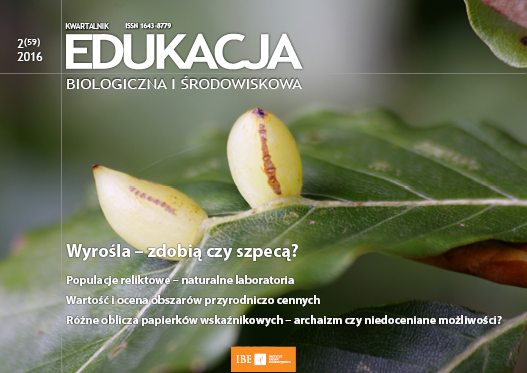
Universal indicator paper is a basic term through chemical education (3rd and 4th stage of science education). In professional literature related to chemical didactics it is possible to find articles with examples of application of indicators or universal indicator papers in different situation. However, there is a lack of article about comprehensive overview of applied indicator papers, their properties and uses. This is a pioneer work connected with didactics aspects of different kinds of indicator papers. In this article we presented proposition of examples of Matura Exam tasks in Poland (Matura Exam since 2015), which contain application of different kinds of indicator papers (universal indicator papers, starch-iodide papers, lead acetate test papers).
More...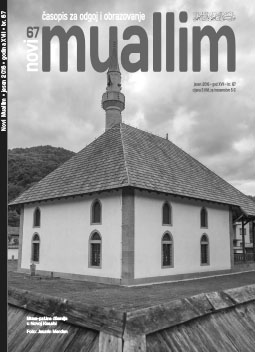
The ultimate aim of all the education is to enable an individual in a way that he becomes a creator of his own development and self-education after the schooling period is over. It has always been and still is a challenge as of what is the right way to prepare youth for their future, how to provide them with safe and above all prosperous future. Our children will be earning their living by means of their creativity, ingeniousness and imagination. The success of a society will depend on optimism, enthusiasm wellbeing of its citizens. Therefore, in order to be capable of facing the challenges and opportunities that are awaiting us in the future, we must make maximum use of all the available human capacities to, as efficiently as possible, transfer the knowledge that we possess to young generations. One of the main traits of modern education is development of students’ creativity. The creativity itself is an ability that transforms the traditional type of education into a creative and open teaching-class.
More...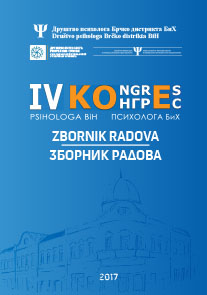
The competence as a construct is consisted of knowledge, skills and abilities to solve the complex tasks through mobilizing psychosocial resources (including skills and attitudes) in certain context. The key competencies are the agreed term for common learning outcomes in education in European context. Their main features are: they are cross-curricular (they are part of all subjects and activities), they are the developmental goals of the whole curriculum and they are complementar (each situation requires more than one competence in order to be solved). In order to prepare the basis for curricular reform in accordance to European requirements, The Agency for preschool, primary and secondary school conducted the research to define the key competencies for BiH and to map their existence in current curricula. One of the main goals of the research was to understand pupil’s perceptions about the importance and existence of specific competencies in educational practice, as well as to identify how they perceive them in particular subject taught in schools. 2875 pupils from primary, secondary general and vocational schools from BiH participated in the research. The instruments for data gathering were constructed based on the predefined indicators of key competencies. The results showed that pupils rank as the most important competencies the ones which are mostly present in the teaching practice; communication competencies in native and foreign languages, mathematic literacy (numeracy), IT literacy and health competence, while the least important ones were self-initiative and entrepreneurial competence and civic competence. The results also showed that the current educational process does not support cross curricular teaching, which is the main prerequisite for positioning the competencies as the developmental goal and main learning outcomes. The research showed that there is a great need for curricular reform in order to align the educational system in Bosnia and Hercegovina with European systems.
More...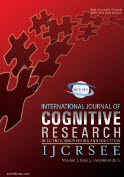
Team teaching factors, including mission clarity, affiliation, innovativeness, and fairness, are examined to determine how they influence student learning in a team-taught course. The study involved 184 college students enrolled in an Introduction to Computers course delivered in a team-taught format in a large university located in the United States. The collaborative teaching design followed a traditional team teaching approach with an instructor team teaching the same course collaboratively. Students enrolled in the team-taught course filled out an online survey targeted at identifying key factors that influence student-based outcomes (satisfaction and competency) in the course. Results showed that instructor team mission clarity, affiliation, and fairness are significantly related to students’ satisfaction while instructor team mission clarity and fairness are significantly related to students’ competency.
More...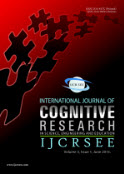
The traditional concept of the teaching staff continually is expanding and changing not only in the content but in the methodology and in the forms of learning as well because of the permanent change of the social conditions and the advancement of the science and technology. The teacher is a mediator of the knowledge and a key person who realizes the reforms and the teaching processes into practice and that is why the present and the future requires from the teacher qualified, expert and fundamental pedagogical knowledge .The competences and the skills as a changeable category mainly recognized and focused on the enrichment and the personal development of someone who learns, besides the initial education implies flexibility as well. Even more it implies improvement of the skills and the knowledge according to the given time frame periods and life conditions by the science and the technology development. During the teachers’ initial education there is a need of expanding their pedagogical skills and competences in order the pedagogical function to be fulfilled in a modern world using the foreign language in the teaching process as a tool for an entry to new resources and innovative techniques of studying.In the paper there is a presentation of a short comparison of the teachers’ competences in the English linguistic speaking areas and in Macedonia through comparing the educational programs of the higher faculty institutions and colleges.We will present their attitudes and opinions in terms of the level of the acquired competences in the initial education. The results are to be used in the professional improvement of the teaching competences of the English language and other subject teachers during their initial education. The research implemented with the teachers in the schools led to the conclusion that there is an immense need of expanding the teachers’ competences during their initial education.
More...
Today, in education prevails the paradigm that is geared towards the complete and varied development of a person. This implies the development of the students ability for self-determination towards various other perspective offered by contemporary social residence. Meanwhile in the time of adolescence, the youth experience serious crises regarding their identity, in which the free time and the activities during the free time can be positively used with a cause to be interrupted unconstructive and chaotic use of the free time by the youth. In this thesis are being analyzed the contents and the ways with what the secondary school students in the Republic of Macedonia fulfill their free time outside the school, specifically there will be an examination about the gender differences i.e. the amount and manner of spending their free time. In the approach to the study of the problem of research, we decided to apply: inductive method, deductive method and the method of comparison.
More...
In an effort to look into the importance and structure of the program through a simultaneous analysis of the achievement outcomes for the Music course in three countries – Croatia, Montenegro, and Serbia, the authors have performed a detailed analysis of a number of documents covering the topic in these countries. A comparative analysis of the contents of these documents has provided us with the opportunity to assess the speed at which the educational systems in the three countries are being reformed, the differences in the approach to individual areas, but also the need to provide joint theoretical efforts whose goal would be to foster what is the common denominator for us all – a promoted process of teaching music which would provide a simultaneous development of students’ artistic identity.
More...
The teaching profession is built upon the initial education on relevant pedagogical faculties, and further upgraded and improved through continuing education through various forms of professional development.The competencies of the teacher for realization of educational activity represents the content and function of its professional obligations. Global taxonomy of teacher’s competences are consisted of pedagogical competencies and professional competencies.The pedagogical competence of the teacher has one main characteristic - it enables the organization and realization of educational process. The professional competences of the teacher, in fact, represent the competence and commitment to implement the teaching.The subject of research in this paper is the professional competences of the teachers. The research is focused on the identification of the professional competencies of the teacher, with the possibility of extension and deepening of the established taxonomy with new competences.The professional qualifications of teachers are closely related to the profile and characteristics of the educational system. Partial and global changes in educational systems have led to changes in competence of the teacher. In order to establish more successful future projection of the impact of teacher’s competences on all school activities and arising results, the proposed changes will focus on: improving the quality of working conditions in primary schools - the basic requirements to equip with modern educational technology; changes in curriculum placement; greater efficiency of educational work; systematic assessment of the teacher, which will result in raising its position in society.
More...